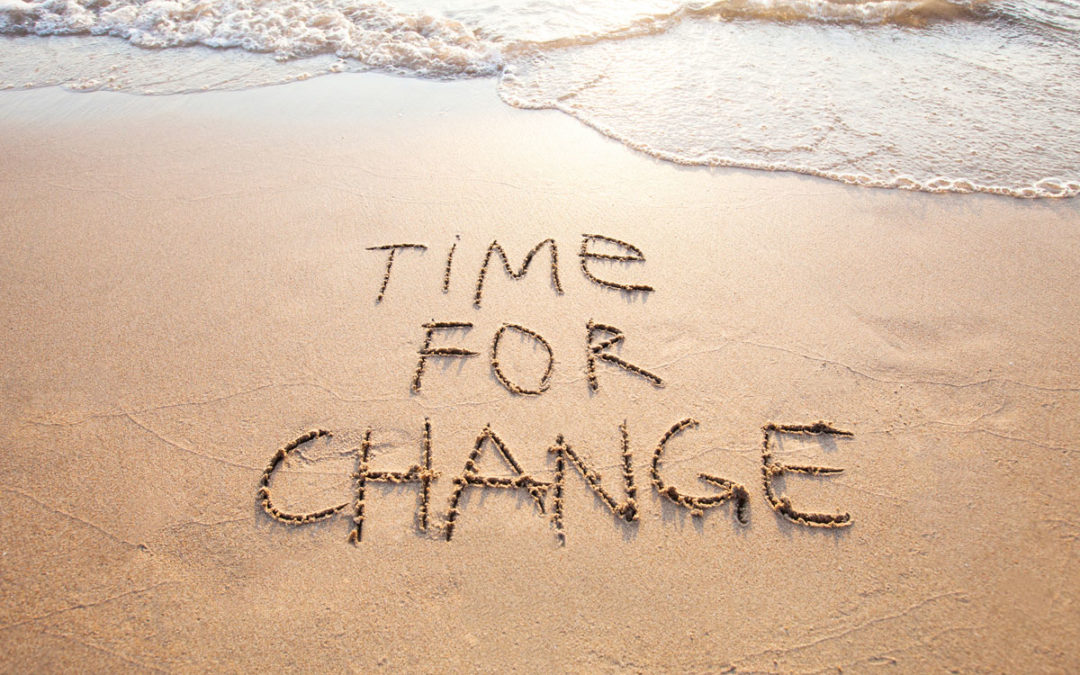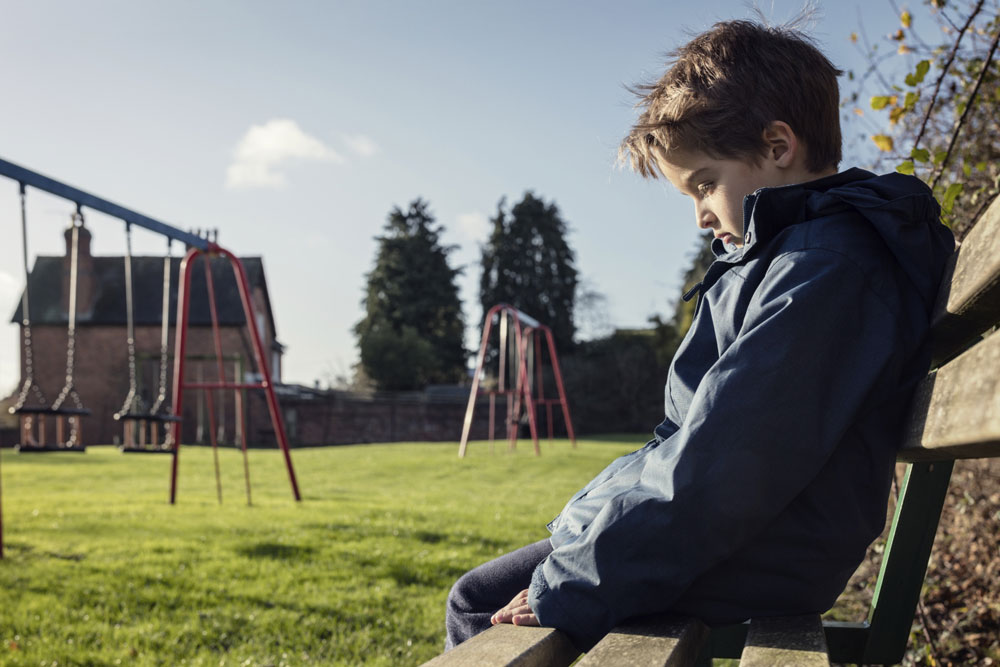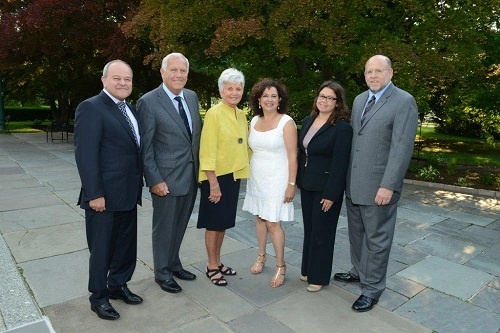
by North Shore Child & Family Guidance Center | Jan 11, 2018 | Blog
Monday is a special holiday: Martin Luther King Day. Dr. King was known for many things, chief among them his passionate voice that called for a nonviolent but forceful response to injustice. He faced many obstacles, but continued until his last breath to speak his truth, regardless of the consequences.
In the last few months, we’ve also seen another response to injustice, with women speaking out about sexual harassment and finally being heard and believed. It takes a lot of bravery to speak your truth when it’s something that is so personal and that has been dismissed, minimized or ridiculed in the past by the larger culture.
We have also seen a shift as more people speak about their mental health issues. That’s not easy to do in a culture where a long-held theme is that, if you’re feeling down, you just need to “pick yourself up by your bootstraps.”
At North Shore Child & Family Guidance Center, our mission is to bring hope and healing to those experiencing mental illness and addictions issues, regardless of their ability to pay. But we also have another mission: To speak out against the stigma associated with having a mental health or chemical dependency issue.
Guidance Center Executive Director Andrew Malekoff has been advocating for many years regarding this issue. Below is a column he wrote for Anton Media.
“When we hear that our neighbor’s teenage son has been diagnosed with cancer, or that our colleague’s newborn has a heart defect, we shed some tears—and then we move into action. We bring meals; we offer to take their other kids to soccer games or piano lessons; we raise money so the parents can stay home from work to care for their ailing children.
But when we learn that our daughter’s best friend has been hospitalized for depression, or that a boy on our son’s basketball team has stopped going to school because of severe anxiety, we’re often at a loss as to how to respond.
Here’s a fact that may surprise you: Although more children suffer from psychiatric illness than autism, leukemia, diabetes and AIDS combined, only one of five with an emotional disturbance gets help from a mental health specialist. Moreover, 50 percent of serious mental illness occurs before the age of 14.
People with mental health problems and addictions, along with their families, often suffer in silence, while people with physical health problems evoke the sympathy and support of others. Why do we continue to treat illnesses above the neck differently than illnesses below the neck?
The sad truth is that there’s still a widespread stigma when it comes to mental health. The result? Parents who need help often wait months and even years to make that first phone call. A parent whose child is diagnosed with cancer doesn’t wait to ask for help. Waiting only happens with mental illness and addiction.
Fortunately, more than 60 years after our founding, North Shore Child & Family Guidance Center is still here to fight that stigma and provide help to children in need. Let me share a few of their stories.
We met six-year-old Jerome soon after he attempted to jump out a window because, as he said, “Nobody loves me.” Fifteen-year-old Celeste said the reason that she cuts her arms until they bleed is not to take her life, but to lower her blood pressure. And 14-year-old Maria told us that she lives in a house with a revolving door welcoming men who touch her.
Depression, anxiety, fear, child abuse, school refusal, bullying, isolation, drug addiction, domestic violence . . . we receive more than 100 calls a week, and increasing numbers are emergencies.
All across Long Island, mental health agencies are shuttering their doors, or they’ve been acquired by corporate entities with no roots in the community. That’s tragic, because community-based mental health organizations are as essential to the health and well-being of our children as hospitals or schools.
What can you do? First, tell your representatives that you value the mental health organization that serves your community and would like their support to ensure its future. And if you know someone whose child is suffering from a mental health issue, don’t ignore them. Make that phone call. Let them know you care.”
For information on what the Guidance Center is doing to combat stigma and to learn how you can help, visit our webpage and click on Project Access, a year-long study we conducted that looks at the difficulties in accessing mental health care, including the problem of stigma.

by North Shore Child & Family Guidance Center | Nov 9, 2017 | Blog
If your child has a fever of 104, you know it’s time to take him or her to the doctor. But how do you know if it’s time to take your child to a therapist?
Most children and teens will experience anger, anxiety and sadness at times. It’s part of growing up. They might have a fight with a friend, or be struggling with a subject at school, or question whether they fit in with their peers. Hormonal changes can also create moodiness and irritability. And bullying can also be a factor.
So, while it’s typical for your youngster to have times of struggle and rebellion, how is a parent to know whether it’s time to seek out professional help?
“Children at different developmental stages express their feelings differently than adults,” says Regina Barros-Rivera, Associate Executive Director at North Shore Child & Family Guidance Center. “Sadness may be displayed by aggression, agitation or moodiness. A child may withdraw, increase sleep or be unable to sleep, or have a poor appetite.”
Changes in behavior surrounding school are another important factor. “It could involve a change in attitude about school work, inconsistency with getting up on time or, even more critical, school refusal,” says Barros-Rivera.
According to the National Association of School Psychologists, each year approximately 2%–5% of children refuse to go to school due to anxiety or depression. School refusal could be a sign of social anxiety, says Barros-Rivera, or it could indicate an increase in difficulty handling more academic demands. Bullying may be a factor. School refusal can also represent the onset of depression.
Here are some warning signs that your child may need professional help:
Does your child or teen…
- Often express feeling anxious or worried
- Seem moody or irritable much of the time
- Get angry and argue frequently
- Have difficulty making/keeping friends
- Have no interest in things they used to enjoy
- Say they’re sick often but with no physical cause
- Lie consistently
- Use drugs or alcohol
- Have little energy
- Have periods of intense, excessive activity
- Self-harm (cutting, burning, pulling hair)
- Harm others or express the desire to harm others
- Engage in risky, destructive behavior
- Express suicidal thoughts
- See or hear things others do not
Once you’ve determined that it’s time to call a therapist, how do you find the right one for your child? One place to start is by asking for references from your child’s school guidance counselor. Also, if you have friends who have used a therapist for their child, ask for their recommendations. Make sure the therapist or agency has specific experience dealing with young people.
Help is available! Call North Shore Child & Family Guidance Center at (516) 626-1971 for more information.
Sources: www.nasponline.org
by North Shore Child & Family Guidance Center | May 3, 2017 | In The Media
Nassau County Office of Mental Health May 1 2017 newsletter
The American reality today is 1 in 5 children has or will have a serious mental illness. More children suffer from psychiatric illness than from autism, leukemia, diabetes and AIDS combined. Yet, the average delay between the onset of symptoms and intervention is 8 to 10 years. Nevertheless, we continue to treat illnesses above the neck differently than those below the neck.
There is great misunderstanding and fear among many who have erroneous ideas about people with mental illness. Consequently, young people suffering with mental illness walk around feeling isolated, believing that there’s something inherently wrong with them that will never change.
We must do more to identify mental health problems early and then, when indicated, provide ready access to quality community-based mental health care.
This is difficult to accomplish when resources for outpatient children’s mental health care are dwindling for middle class and working poor families. Access to care remains a daunting problem for families who hesitate to ask for help due to stigma and the shame it generates. When they finally call for help, they are often denied the timely, affordable and geographically sensitive care they need from insurers with inadequate networks of providers.
For 64 years, North Shore Child & Family Guidance Center has been dedicated to offering our clients the gold standard in community-
based mental health care. The Guidance Center is headquartered in Roslyn Heights, with branch offices in Manhasset and Westbury. Our catchment area is all of Nassau County.
At the Guidance Center, where we turn no one away for inability to pay, we are receiving increasing numbers of referrals of children and youth at unprecedented rates of risk and danger, many of whom are at risk for institutional placement, the most costly form of care.
To prevent this costly alternative, North Shore Child & Family Guidance Center has developed an array of intensive outpatient services to keep children and adolescents with serious emotional disturbances at home and in their communities. These include office-based, home-based, and school-based mental health services that are provided by teams of qualified health professional and family advocate/professional parents working in partnership to optimize care coordination. Following are highlights of just a few of these initiatives:
LATINA GIRLS PROJECT
In recent years, North Shore Child & Family Guidance Center has been fielding a record number of calls through our triage, emergency and high risk team from the families of Hispanic teen girls in dire need of help. These first-generation Latinas were coming to the Guidance Center with severe depression, self-harming behaviors, school refusal and suicidal thoughts or attempts. Many had been victims of sexual and emotional abuse or witnesses to domestic violence.
It became clear that there was a consistent theme among these young Latinas-the overwhelming feeling that they could never merge the cultural expectations of their families with their desire to fit into life in contemporary American society. They yearned to be more like their peers, but feared that would cause tremendous pain to their parents, many of whom had immigrated to America after experiencing severe trauma in their war-torn and poverty-stricken native countries.
In response to the crisis, the Guidance Center began the Latina Girls Project, an innovative program designed to foster effective, open and healing communication among these young women and their parents.
Through a culturally sensitive and holistic approach, our staff of bilingual and bicultural counselors and social workers- many of whom are also first-generation Latinas-provides individual therapy, family therapy, and weekly group meetings for the girls and their parents.
The Latina Girls Project also includes supervised outings for the girls that are designed to help them develop self-esteem, learn responsibility, gain team-building skills, and realize that the larger world offers them many opportunities to lead successful, joyful lives.
The Latina Girls Project was profiled in an award-winning nationwide story published by the Journalism Center on Children & Families at the University of Maryland.
ORGANIC GARDENS
Young people are inundated with constant stimulation from their digital devices, with many glued in front of computer screens and video games as they struggle with feelings of loneliness and rejection. That lack of connection to the natural world negatively impacts them physically, emotionally and socially.
To address this problem, the Guidance Center has added an organic garden initiative to our weekend wilderness program. This offers a unique opportunity for at-risk adolescents and children to participate in nature activities that foster individual growth, leadership skills, self-esteem, mindfulness and improved group communication while also promoting environmental stewardship. Young people tend to our two organic garden programs located at the Guidance Center’s headquarters in Roslyn Heights and early childhood center in Manhasset, where they water, seed and weed, filling with delight as they see their hard work grow into a healthy harvest.
Through the dedication of these young people, we had a bountiful surplus that was donated to local food pantries, a fact that made the teens—and our staff who have the honor of nurturing them—extremely proud.
GOOD BEGINNINGS FOR BABIES
The statistics on teenage pregnancy paint an alarming picture: babies born to teen mothers are more likely to be premature and have low birthweights, resulting in potentially long-term cognitive and health problems. Without proper care, the teen moms are also at high risk for physical, emotional and economic woes.
But it doesn’t have to be that way. Our Good Beginnings for Babies program works with pregnant and parenting teens to promote healthier pregnancies, healthier babies, and happier relationships between parent and child.
In our weekly prenatal and parenting groups, teens receive education on crucial issues such as nutrition, labor and delivery, breastfeeding, newborn care and perinatal mood disorders. They also benefit from home visits by a parent educator who shares information and resources to help these young families.
May 1, 2017 Vol. 1: No. 2 Page 4
component of Good Beginnings for Babies will help prepare mothers for their most important role: to be their child’s first teacher.
CAREGIVERS GRANDPARENT RESPITE AND SUPPORT PROGRAM (C-GRASP)
What happens when parents are unable to care for their children? In many cases, the responsibility falls to their parents, many of whom face serious challenges as they strive to raise these youngsters. That’s why we created C-GRASP, the Caregivers Grandparent Respite and Support Program.
Through partnerships with a supportive team of local entities, including the Town of North Hempstead’s Project Independence, we provide the grandparents with a variety of services, including respite and peer support activities, counseling, clothing and other necessities, housing assistance, transportation and school advocacy.
Home visits are a major focal point, as we identify an increasing number of grandparent caregivers with illnesses that limit their ability to leave their homes. In partnership with Long Island Cares and Long Island Harvest, we added a food supplement component to our home visits this year, delivering fruits, vegetables and other nutritious items to each household.
The grandparents have created strong bonds among themselves and also social connections for their grandchildren, joining together for recreational activities in their homes. These dedicated caregivers continue to reach out to others faced with similar challenges, sharing their experiences, strength and hope.
INTENSIVE SUPPORT PROGRAM
A good education is the foundation of a successful life, inspiring knowledge, creativity, social bonds and an economically promising future. But for children with serious emotional difficulties, the regular school environment can be overwhelming. These kids are the most likely to drop out—and also be the targets of bullying.
The Intensive Support Program (ISP), a collaborative program developed by Nassau B.O.C.E.S and the Guidance Center, provides a therapeutic and nurturing alternative, offering intensive mental health services onsite at three schools for students ages 5-21 from all 56 Nassau County school districts. We reach more than 150 students each year.
ISP takes a team approach, as members of the Guidance Center staff work with each school’s administrators, counselors and teachers to support the students’ emotional and academic needs. ISP services include individual, group and family therapy; crisis intervention; coordination of family services; and medication management, when needed.
While the students are required to follow the same curricula as in other educational settings, the lessons are individualized to meet each student’s learning style. Through ISP, students develop the skills that are necessary for growth and success both on an academic and emotional level. We’re proud to be helping our most vulnerable children and teens achieve their full potential!
SUBSTANCE ABUSE SERVICES
Drug and alcohol treatment and prevention services are provided for children, teenagers and their families at the Guidance Center’s Leeds Place-serving young people in Westbury.
Substance abuse services include: counseling for youth using/abusing substances; children who live in families with a parent suffering from alcoholism or drug addiction; youth who have co-occurring chemical dependency and mental health issues. Prevention services are provided to local school districts.
Andrew Malekoff, LCSW, CASAC, Executive Director
If you would like to participate in our research project and lend your voice to improving access to care, please go to this link to complete our IRB-approved survey: http://studentvoice.com/liu/projectaccess
![Guidance Center Hosts Golf & Tennis Classic]()
by North Shore Child & Family Guidance Center | Jun 30, 2015 | Press Releases
On June 15, North Shore Child & Family Guidance Center hosted the annual Jonathan Krevat Memorial Golf & Tennis Classic at The Creek in Locust Valley. The Event raised more than $230,000 to support the programs and services of the Guidance Center.
This year’s outstanding honorees were Steven Dubb of The Beechwood Organization and Michael Duffy of Duffy & Duffy PLLC. Jack Bransfield (Bethpage Federal Credit Union), Michael Mondiello (Joseph Gunnar & Co., LLC) and Michael Schnepper (Rivkin Radler LLP) co-chaired the event. Christopher Robbins of Robbins Wolfe Eventeurs served as the auctioneer.
 Participants enjoyed a great day of golf and tennis followed by a steak & lobster dinner reception.
Participants enjoyed a great day of golf and tennis followed by a steak & lobster dinner reception.
North Shore Child & Family Guidance Center is the pre-eminent not-for-profit children’s mental health agency on Long Island, leading the way in diagnosis, treatment, prevention, training, parent education, research and advocacy.
The Guidance Center is dedicated to restoring and strengthening the emotional well-being of children (from birth – age 24) who are troubled, in trouble or causing trouble. Our highly qualified team of caring psychiatrists, psychologists, social workers, drug and alcohol counselors, mental health counselors, vocational rehabilitation counselors and family advocates work with children and their families to address issues such as depression and anxiety; developmental delays; school refusal; bullying; sexual abuse; teen pregnancy; and family crises stemming from illness, death, trauma and divorce. We offer outpatient mental health counseling and teen drug abuse and prevention services.
For more than 60 years, the Guidance Center has been a place of hope and healing, providing innovative and compassionate treatment to all who enter our doors, regardless of their ability to pay.
For more information about the Guidance Center, please visit www.northshorechildguidance.org or call 516 626 1971 ext. 320.
![Guidance Center Hosts Golf & Tennis Classic]()
by North Shore Child & Family Guidance Center | Jun 24, 2015 | Press Releases
On June 10, North Shore Child & Family Guidance Center hosted its 62ndt Annual Meeting at The Carltun at Eisenhower Park.
The following awards were presented: Distinguished Friends Award – Chris and Jack Bransfield; Media Award – Laura Figueroa; 25 Years of Distinguished Service – Joan Vitiello; Staff Awards – Cindy Ambrose and Brian Eck.

Nancy Lane was sworn in as the President of the Board of Directors for a two year term and Charles Chan of Harvest International was named as a member of the Board.
North Shore Child & Family Guidance Center is the pre-eminent not-for-profit children’s mental health agency on Long Island, leading the way in diagnosis, treatment, prevention, training, parent education, research and advocacy.
The Guidance Center is dedicated to restoring and strengthening the emotional well-being of children (from birth – age 24) who are troubled, in trouble or causing trouble. Our highly qualified team of caring psychiatrists, psychologists, social workers, drug and alcohol counselors, mental health counselors, vocational rehabilitation counselors and family advocates work with children and their families to address issues such as depression and anxiety; developmental delays; school refusal; bullying; sexual abuse; teen pregnancy; and family crises stemming from illness, death, trauma and divorce. We offer outpatient mental health counseling and teen drug abuse and prevention services.
For more than 60 years, the Guidance Center has been a place of hope and healing, providing innovative and compassionate treatment to all who enter our doors, regardless of their ability to pay.
To learn more about the Guidance Center, please visit www.northshorechildguidance.org or call (516) 626 1971, ext. 320.




